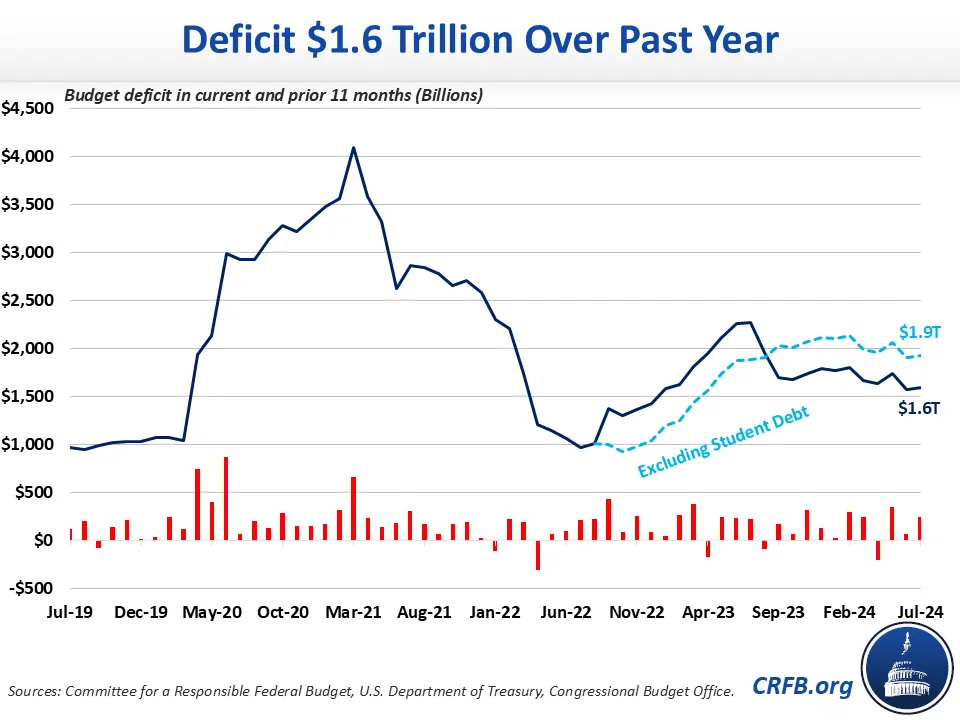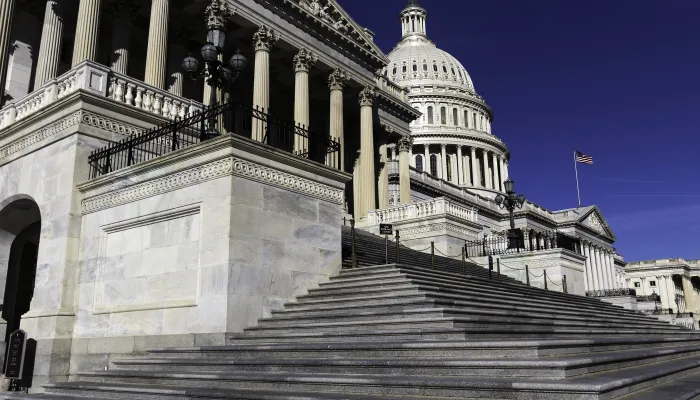12-Month Rolling Deficit Mostly Unchanged After July 2024
The federal budget deficit totaled $1.6 trillion over the 12 months between August of 2023 and July of 2024 based on estimates released today by the Congressional Budget Office (CBO). This monthly deficit is largely unchanged from last month.
CBO estimates that the federal government borrowed $242 billion in July 2024, causing the 12-month rolling deficit to be $21 billion higher than last month. Removing the effects of the student loan cancellation, which was ruled illegal last year, the rolling deficit was $1.9 trillion, unchanged from June. As a share of the economy, the rolling deficit was 5.6 percent of Gross Domestic Product (GDP), or 6.8 percent of GDP excluding the effects of the student loan cancellation.

Compared to the previous 12-month period, total nominal spending is up 1.2 percent to $6.4 trillion (22.8 percent of GDP). Nominal revenue is up 1.1 percent compared to the previous 12-month period, to $4.8 trillion (17.1 percent of GDP).
The gap between spending and revenues continue to add to our deteriorating fiscal situation. As we discussed in our analysis of CBO's June baseline, deficits are projected to total $1.9 trillion in Fiscal Year (FY) 2024 and $2.9 trillion by FY 2034. Debt is projected to rise from 99 percent of GDP at the end of FY 2024 to a record 106 percent by FY 2027 and 122 percent of GDP by FY 2034. Policymakers should take action to present both immediate and long-term solutions to our fiscal deterioration.

